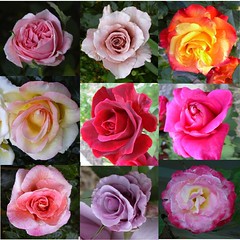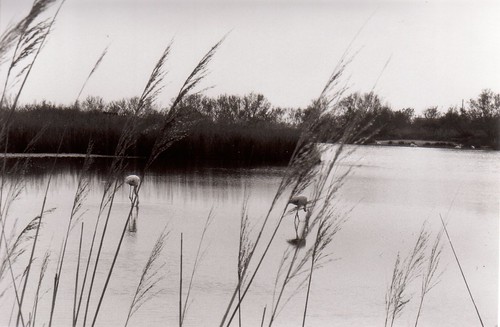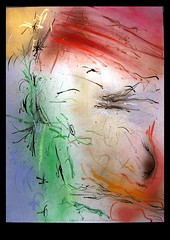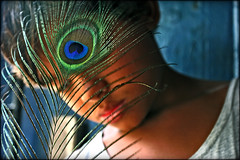The Five Love Languages
 [Photo: 9 roses of my love by Quarrion]
[Photo: 9 roses of my love by Quarrion]Take a moment to think about what makes you feel loved and appreciated. What must be present in your closest relationships in order for you to be content and happy? Do you love to receive compliments? Do you enjoy receiving large and small tokens of apprecitaion? Do you crave spending quality time with your loved ones?
Now think about how you express your heartfelt emotions to others. Does it mirror the manner in which you enjoy love to be communicated to you? Most of us typically express our love in the manner we wish it to be expressed to us. However, have you ever considered that what makes others feel loved is not the same as what makes you feel loved? Have you struggled in relationships where you devoted great efforts to expressing your heartfelt feelings, but the other person found it difficult to understand and experience your emotions? Perhaps the reason for the miscommunication was that you were speaking a language the other person could not understand -- that is, perhaps you were speaking in an unfamiliar love language.
In the book, The Five Love Languages, Gary Chapman asserts that people express and recieve love in different manners. Chapman claims that love is typically expressed in five ways he titles the "love languages":
- Quality time
- Words of affirmation
- Gifts
- Acts of service
- Physical touch
While each of us most likely expresses our feelings via a mixture of some or all of the love languages, we each have a primary language with which we most identify. Our primary love language is the one that, when spoken to us, triggers feelings of love and appreciation. Our primary love language is also a reflection of the manner in which we express our own emotions to others.
Consider what happens when two people with different primary love languages try to foster a relationship with each other. Emotional expressions will most likely result in many miscommunications and misunderstandings, as each person's expressions of love cannot be fully understood by the other. For example, if my partner's primary love language is acts of servie and I continually buy him gifts as expressions of my love, I am not communicating my feelings in a manner he can fully understand and relate. If I do not perform acts of service for him on a regular basis, he will feel that I do not tend to his emotional needs (despite the fact that I think I am -- can you imagine the arguments that will ensue?).
When we are not capable of speaking our loved one's primary love language -- consciously or not -- the risk is great that our loved one will not know and experience the depth of our feelings. In these situations, if the dynamics at play are not carefully examined and modified, both parties will eventually feel emotionally exhausted, unloved and unappreciated. The relationship will be poisoned slowly over time as each person begins to withdraw from the other. However, by taking the time and effort to learn our loved one's primary love language, we can begin to modify our behavior in order to prevent emotional stagnation from occuring. In my previous example, my partner might experience my love more fully if I cooked dinner or helped out around the house instead of buying him presents.
The concepts presented in Chapman's book are very insightful and eye opening. The principles can be applied to all relationships in our lives, romantic or platonic (in particular, parent-child relationships). Taking the time to determine your own primary love language and that of those important to you, will afford your relationships a new dimension.
Be sure to express your primary love language to your loved ones -- we can't expect others to guess our needs -- and be sure to identify the primary love language of those close to you. You may have to learn to speak one or more of the love languages with a new proficiency, but your efforts will be well worth the challenge. You will more effectively receive and experience love and appreciation, and you will be able to return the favor to those you love!
What makes you feel loved and appreciated? Which is your primary love language?



















